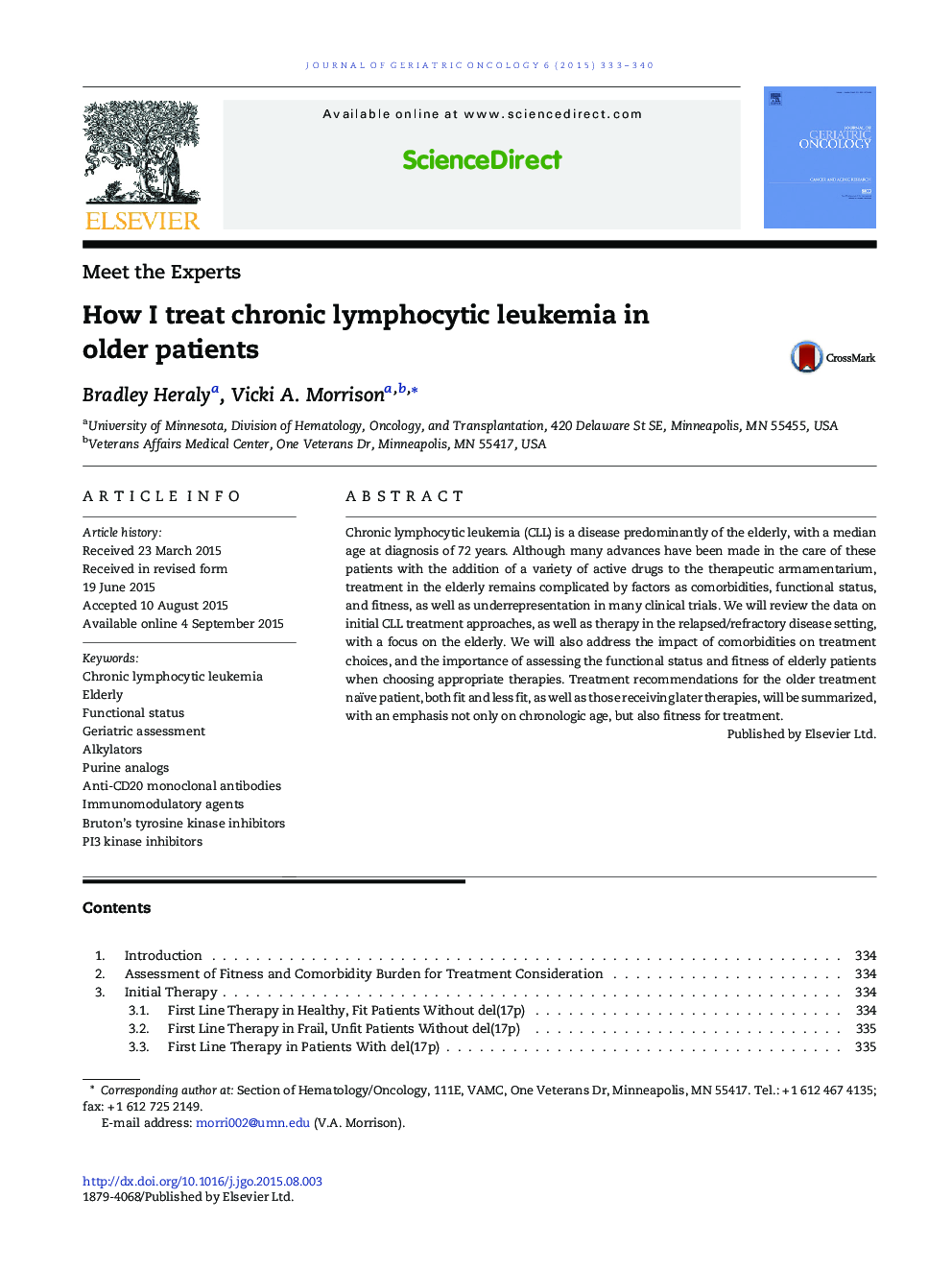| Article ID | Journal | Published Year | Pages | File Type |
|---|---|---|---|---|
| 1912219 | Journal of Geriatric Oncology | 2015 | 8 Pages |
Abstract
Chronic lymphocytic leukemia (CLL) is a disease predominantly of the elderly, with a median age at diagnosis of 72Â years. Although many advances have been made in the care of these patients with the addition of a variety of active drugs to the therapeutic armamentarium, treatment in the elderly remains complicated by factors as comorbidities, functional status, and fitness, as well as underrepresentation in many clinical trials. We will review the data on initial CLL treatment approaches, as well as therapy in the relapsed/refractory disease setting, with a focus on the elderly. We will also address the impact of comorbidities on treatment choices, and the importance of assessing the functional status and fitness of elderly patients when choosing appropriate therapies. Treatment recommendations for the older treatment naïve patient, both fit and less fit, as well as those receiving later therapies, will be summarized, with an emphasis not only on chronologic age, but also fitness for treatment.
Keywords
Related Topics
Life Sciences
Biochemistry, Genetics and Molecular Biology
Ageing
Authors
Bradley Heraly, Vicki A. Morrison,
